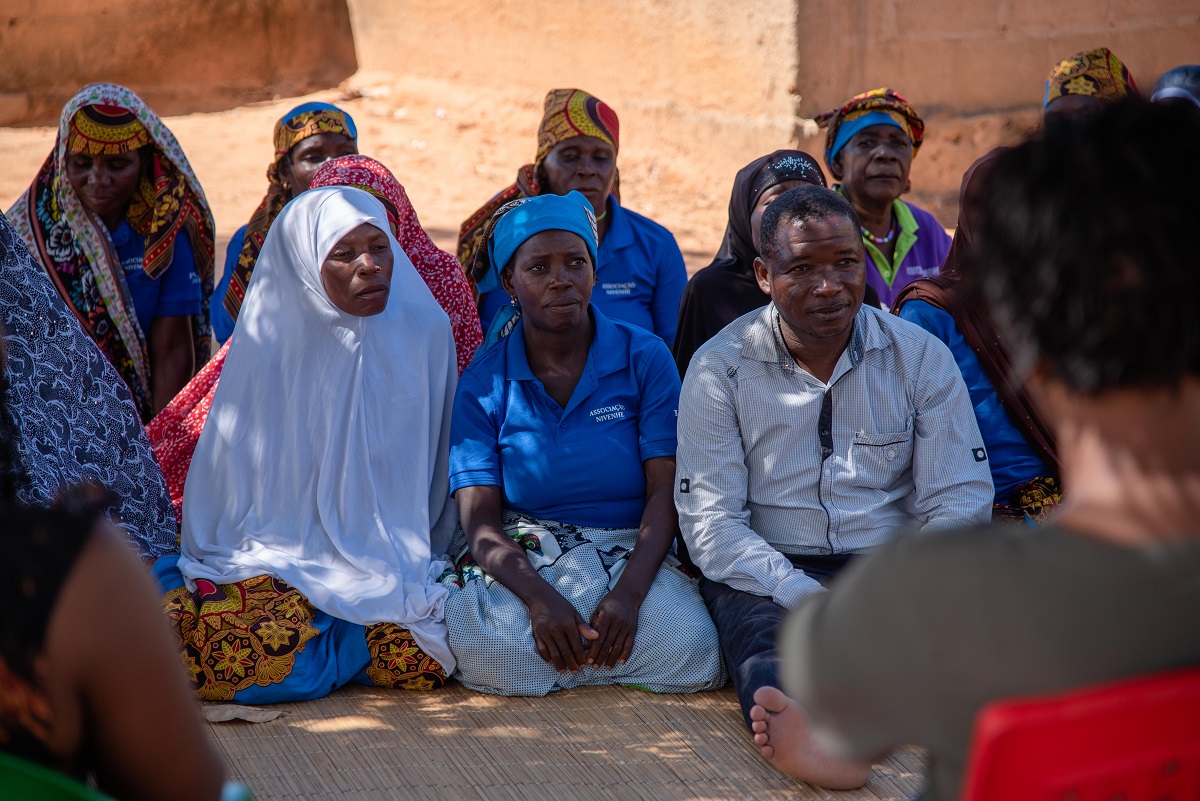Sylvia Viagem, is a mother of three, living in Mozambique. For over 10 years, Sylvia has been making a living off the fish she buys from local fishermen. What began as a small business ended up educating her children and enabling her to build a beautiful house for her family.
This is however changing. Sylvia is one of the thousands of people directly affected by climate change.
“When I started this business, I was doing very well. But now it is not working in the same way. There is no fish!” We are seeing a lot of changes. The weather patterns seem to have changed and there is decline in the quantity of fish, says Sylvia showing us 38kgs of fish which is all she has to sell for the day, compared to over 100kgs of fish per day in the past.
In Mozambique, just like most African countries, women are disproportionately affected by climate change and are more exposed to risks such as natural disasters, droughts, floods, and cyclones because they are more dependent on natural resources for their livelihoods and are often marginalized from decision-making processes.
Reversing the trend
The Coastal Resilience to Climate Change (CRCC) project, funded by the Swedish Embassy in Maputo is empowering coastal communities to respond to climate change in an inclusive, resilient and more sustainable way.
The project which is jointly implemented by the Mozambique Ministry of Sea, Inland water and fisheries, IUCN and RARE is aimed at supporting restoration efforts and providing funding for community activities that will lead to increased community resilience and improved household income.
Photo: IUCN ESARO
In late 2019 and early 2020, the project launched several community initiatives and handed over boats, fishing and fish conservation equipment, agricultural inputs for the practice of conservation agriculture and material to establish mangroves nurseries to communities in Inhassoro and Dondo districts.
Speaking during the launch of the community initiatives Narci Premegi, Permanent Secretary Ministry of Sea, Inland water and fisheries in Mozambique said: “Men and women often interact with their environment in different ways: men tend to fish in deep water while women harvest in shallower water. We must ensure that our projects and programs respond to the needs of both women and men. This will improve conservation outcomes and advance human well-being.”
Win – Win
The CRCC project is already enabling women like Sylvia to enjoy equal rights to access natural resources and participate in decision making processes. So far women participation in the project stands at 58% , 53% and 37% in Inhassoro, Memba and Dondo districts respectively.

Photo: IUCN ESARO
“I now participate in community meetings together with the men. If most women are like me, we are deeply connected to nature . We must connect women’s issues and climate change and make sure we find solutions that make sense for communities like ours,” says Sylvia.
“The effort towards achieving gender equality is not only the business of women. Male champions also have a critical role to play and in this project, we are working with both men and women,” says Benedita Rosa Ricardo, project District Focal Point in Memba.
Source link : https://www.iucn.org/news/eastern-and-southern-africa/202003/women-mozambique-engage-climate-change-action
Author :
Publish date : 2020-03-09 07:00:00
Copyright for syndicated content belongs to the linked Source.





